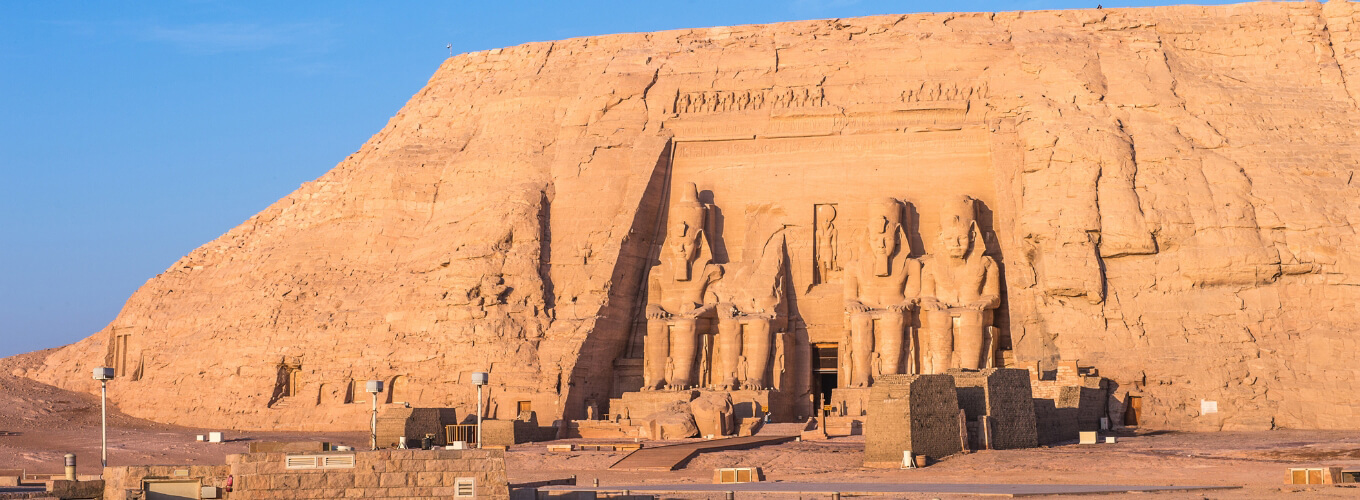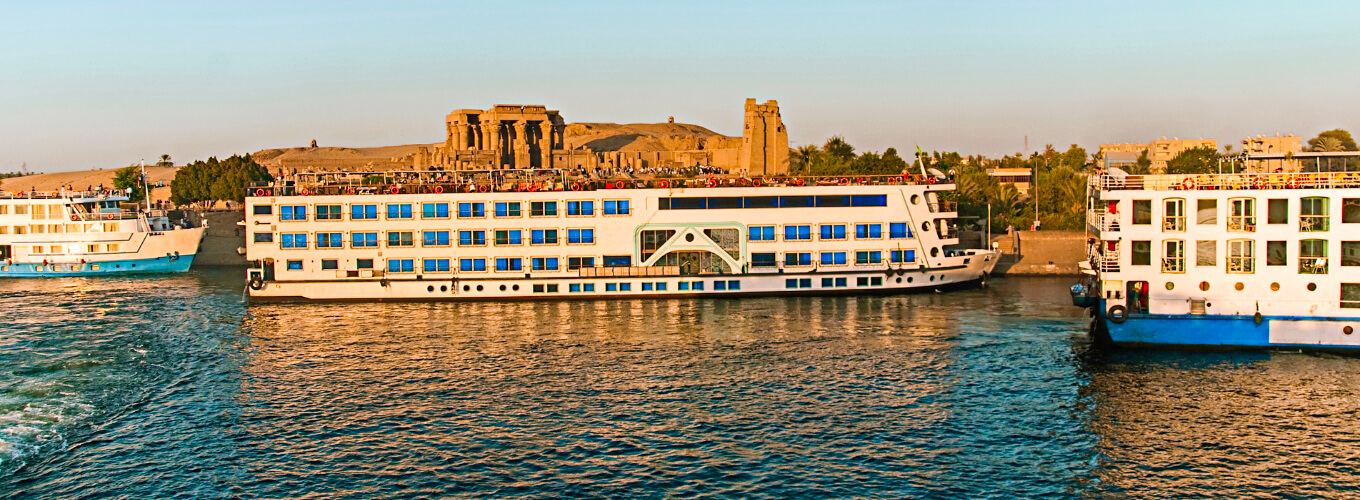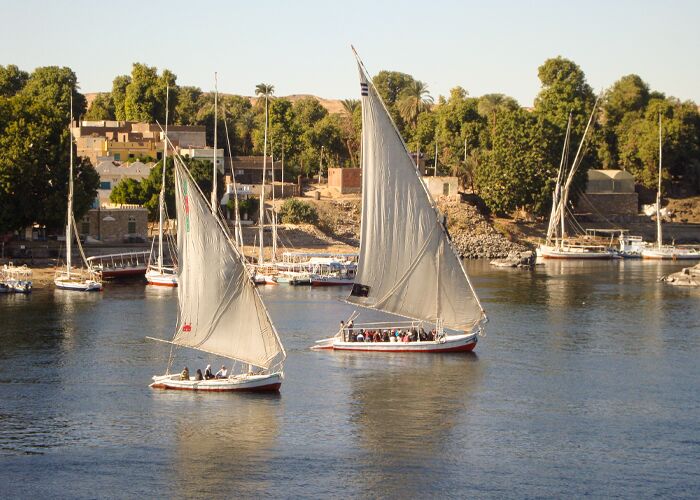Aswan City – The Jewel of Southern Egypt
Introduction: Aswan City
Aswan City is one of the most captivating destinations in Egypt, located along the Nile and known for its tranquil beauty, rich history, and vibrant Nubian culture. Travelers often ask where is Aswan Egypt? or where is Aswan located in Egypt? The answer is that Aswan lies in the far south of the country, about 870 kilometers from Cairo, making it the city on the Nile Aswan that is closest to the Sudanese border. Known historically as Aswan in ancient Egypt, this region served as Egypt’s southern gateway and was celebrated for its granite quarries, temples, and links to Nubia City. For those curious about the Aswan meaning or what does Aswan mean, the name is believed to come from the ancient Egyptian word “Swenett,” meaning “market,” reflecting its role as a bustling trade hub. Today, Aswan City Egypt is famous for its temples, the High Dam, the Philae Temple, and the warmth of the people of Aswan, making it a destination that combines history, culture, and relaxation in a way that few cities can match.
The History of Aswan in Ancient Egypt
Aswan in ancient Egypt held immense significance as the frontier town of the southern kingdom. Known then as Swenett, it was not only a military outpost but also a commercial hub that connected Egypt with Nubia and the lands beyond. The Aswan Egypt location made it ideal for controlling trade routes along the Nile, and it became famous for its granite quarries that supplied stone for many of Egypt’s greatest monuments, including obelisks and temples. Travelers interested in ancient Aswan Egypt will find that it was also a religious center, with temples dedicated to Khnum, the ram-headed god believed to control the Nile’s flooding. Many visitors today are fascinated to learn about what does Aswan mean in historical terms: a symbol of Egypt’s southern strength and prosperity. For those exploring Aswan in Egypt, its ancient ruins and artifacts give an authentic glimpse into life at the crossroads of two great civilizations—Egypt and Nubia.
The Geography and Location of Aswan
For travelers planning their trip, one of the first questions is where is Aswan located in Egypt? The city is situated in the far south, on the east bank of the Nile River, approximately 870 kilometers south of Cairo and 250 kilometers south of Luxor. When visitors ask where is Aswan in Egypt, the answer highlights its strategic position as the last major Nile City Aswan before the river flows into Sudan. This Egypt Aswan location has always been critical, as it served as both a defensive stronghold and a trade route hub. Surrounded by desert and dotted with islands, the city of Aswan Egypt enjoys a warm, sunny climate almost year-round, making it attractive for travelers seeking both history and relaxation. The Aswan population today is around 350,000, including a large proportion of Nubian communities who bring their unique cultural traditions. For anyone wondering where is Aswan Egypt located, it is the heart of southern Egypt, where the Nile is at its most picturesque.

The Meaning and Name of Aswan
Travelers often ask about the Aswan name meaning or what does Aswan mean. The origin lies in the ancient Egyptian word Swenett, which translates to “market” or “trade,” pointing to its historic role as a bustling commercial center. Over time, the name evolved to Aswan, reflecting its continued importance in both ancient Aswan Egypt and modern times. The meaning of Aswan is deeply tied to its identity as a bridge between Egypt and Nubia, and its role in connecting cultures through commerce and community. For visitors who want to define Aswan, it can be described as the southern jewel of Egypt, a Nubia City filled with heritage, temples, and natural beauty. The Aswan meaning today is also symbolic of peace and hospitality, qualities that are reflected in the people of Aswan, who are known for their warmth and generosity. Understanding the history behind the Aswan name gives travelers a richer appreciation of the city’s timeless charm.
The People and Culture of Aswan
One of the most rewarding aspects of visiting Aswan City in Egypt is meeting the people of Aswan. Known for their hospitality and friendliness, the community is a blend of Egyptians and Nubians, giving the city a unique cultural identity. Many travelers encounter Nubian villages along the Nile, where brightly painted houses, traditional crafts, and music highlight a way of life that has remained authentic for centuries. The Aswan population is deeply connected to the Nile, relying on fishing, agriculture, and tourism as key livelihoods. Visitors interested in cultural immersion can enjoy Nubian dance performances, shop for handmade jewelry and textiles, and learn about the customs that define the Aswan Egypt characteristics. For those searching for what is Aswan famous for, the answer includes not only temples and monuments but also its people—whose culture and traditions make Aswan one of the most welcoming destinations in Egypt. Experiencing this vibrant community allows travelers to connect with Egypt in a more personal and meaningful way.
What Aswan is Famous For
Many travelers ask, what is Aswan famous for? The city is celebrated for several key attractions that make it stand out. First is the Aswan High Dam, a modern engineering marvel that controls the Nile’s flooding and created Lake Nasser. Then there is the Temple of Philae, dedicated to the goddess Isis, which was relocated to Agilkia Island after the dam’s construction. Another highlight is the Unfinished Obelisk, located in the ancient granite quarries where pharaohs once sourced stone for their monuments. The city Aswan is also famous for its Nubian villages, vibrant markets, and stunning Nile scenery, where feluccas glide peacefully across the water. Travelers often describe their experience in glowing terms, writing a paragraph about Aswan that highlights its peaceful atmosphere, golden sunsets, and rich heritage. Whether exploring ancient Aswan Egypt or enjoying the modern Aswan City Tour, this destination is renowned for blending history, culture, and natural beauty.
The Monuments and Heritage of Aswan
The city of Aswan Egypt is an open-air museum, offering a wide range of monuments and historical sites. Visitors exploring Aswan in ancient Egypt discover temples such as Philae, Kom Ombo (shared between Sobek and Horus), and Abu Simbel, the iconic temple of Ramses II located further south but closely tied to Aswan. The ancient Aswan Egypt granite quarries are also significant, as they supplied stone for countless temples, pyramids, and obelisks throughout Egypt. Many travelers are amazed at the Unfinished Obelisk, which remains half-carved in the bedrock, offering a glimpse into the craftsmanship of ancient builders. Beyond the monuments, Aswan Egypt characteristics include beautiful landscapes, with the Nile flowing serenely between granite boulders and palm-dotted islands. For history lovers, Aswan is not just a destination but a living connection to ancient Egypt. The combination of temples, quarries, and natural beauty makes it clear why the city Aswan continues to attract millions of travelers eager to step back in time.
Aswan as a Modern Travel Destination
While history defines it, Aswan City Egypt today is also a modern and vibrant travel destination. The city offers a balance of relaxation and exploration, making it perfect for travelers who want to combine sightseeing with leisure. Many visitors enjoy taking a city Aswan tour, riding traditional feluccas on the Nile, or staying at luxury hotels that overlook the river. The Aswan Egypt location makes it a gateway to Lake Nasser cruises, which take visitors deeper into Nubian history and landscapes. The modern Aswan population supports a lively market scene, where visitors can shop for spices, perfumes, and handicrafts. For those wondering what is Aswan famous for today, the answer includes its combination of ancient sites and modern comforts. From visiting Nubian cultural centers to enjoying evening strolls along the corniche, the city of Aswan Egypt provides a complete travel experience. Its laid-back atmosphere also makes it an excellent complement to the busier pace of Cairo and Luxor.

Travel Tips for Visiting Aswan
For travelers planning their journey to Aswan, Egypt, preparation enhances the experience. The best time to visit is between October and April, when the weather is cooler and more comfortable for sightseeing. Many visitors arrive by plane from Cairo, by train, or as part of a Nile cruise that stops at both Luxor and Aswan. A classic Aswan City Tour should include Philae Temple, the High Dam, and a trip to a Nubian village. Visitors curious about what does Aswan mean for tourists will find that it means peace, culture, and discovery. Respecting local traditions is important when visiting Nubian homes or rural areas, and comfortable clothing is recommended for exploring temples and markets. With its sunny climate, Aswan is also perfect for leisurely boat rides and sunset photography. Whether you’re discovering ancient Aswan Egypt or enjoying the city’s modern hospitality, these travel tips ensure that your trip to Aswan City in Egypt is both smooth and memorable.
Conclusion: Why Visit Aswan City Egypt
The Aswan City Egypt experience is one of serenity, culture, and history. From its role in ancient Aswan Egypt as a granite source and religious center to its modern reputation as a cultural hub, Aswan offers travelers an unparalleled journey into Egypt’s southern heritage. Known for its people of Aswan, Nubian traditions, and iconic monuments, the city of Aswan Egypt is as vibrant today as it was in antiquity. Whether you are drawn by the meaning of Aswan, curious about what Aswan is famous for, or eager to explore the breathtaking Nile scenery, this destination will not disappoint. As a Nile City Aswan, it stands apart with its tranquil landscapes and its blend of history and hospitality. For travelers seeking more than just sightseeing, Aswan in Egypt provides the opportunity to connect with the soul of the country. It is truly a place where the ancient and modern worlds meet, making it an essential stop on any Egyptian adventure.

